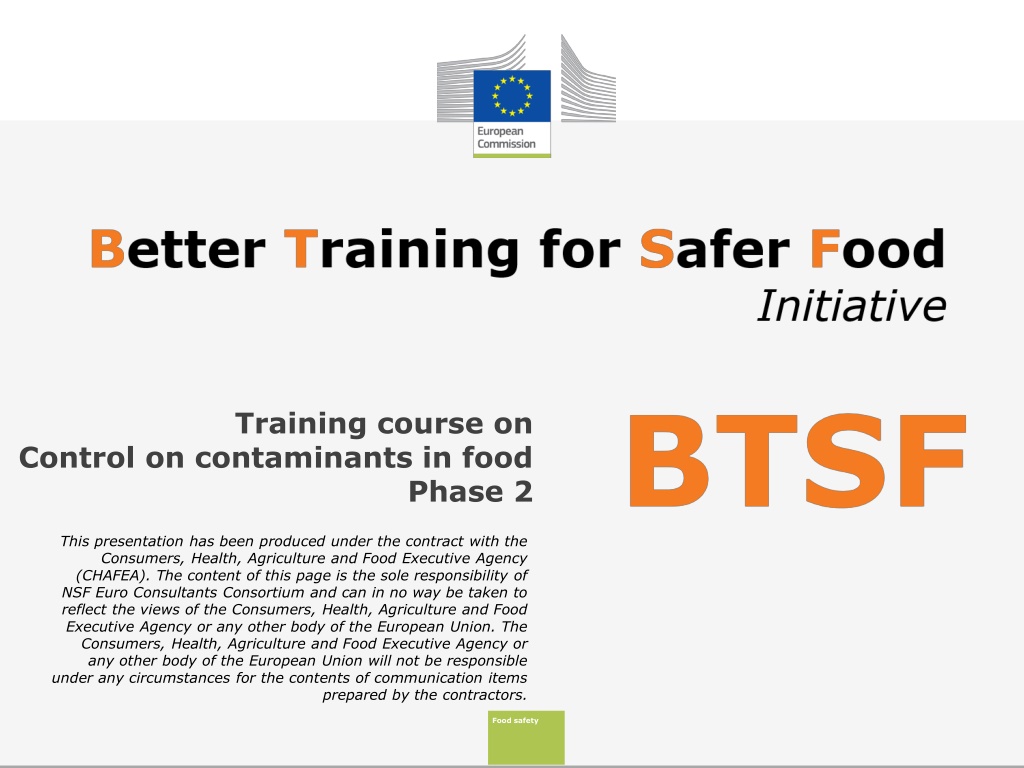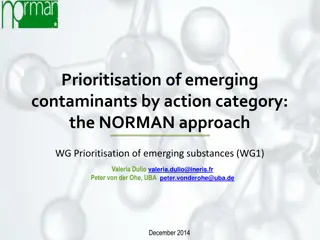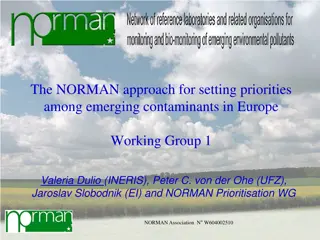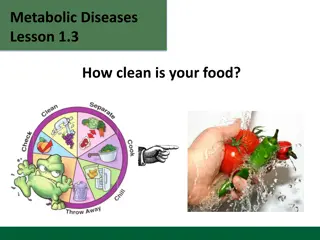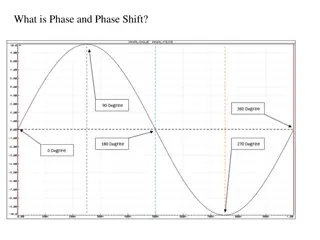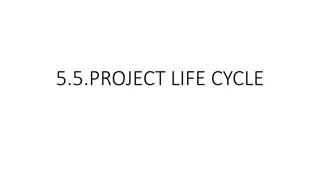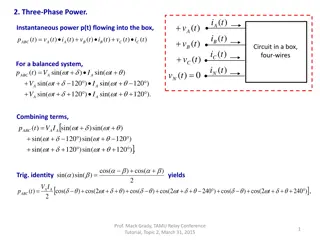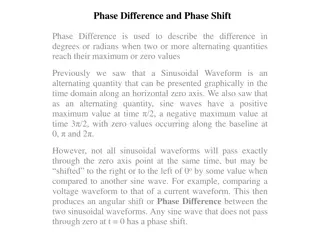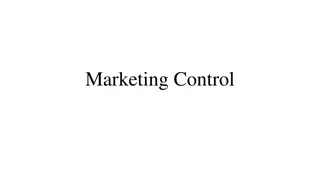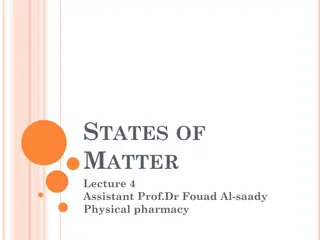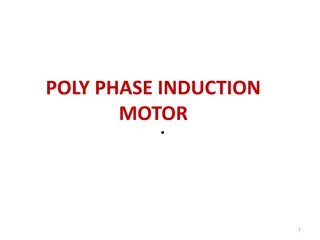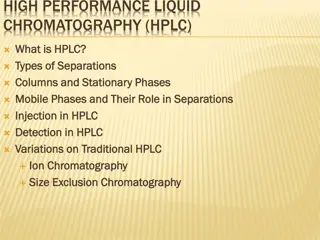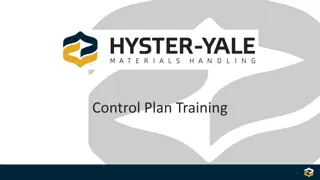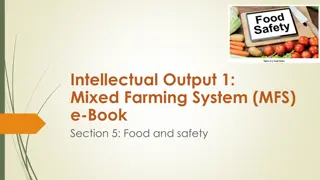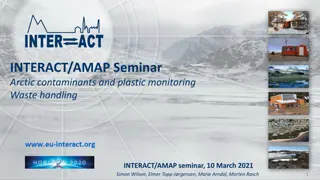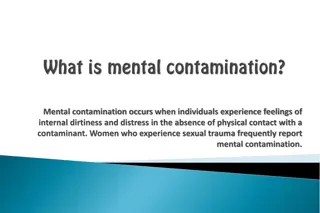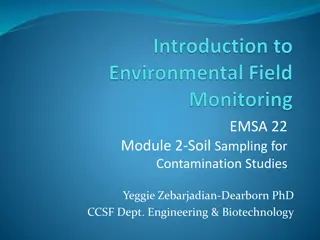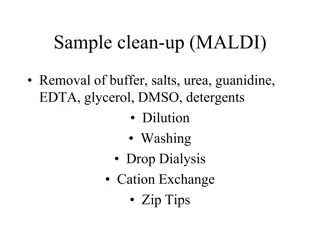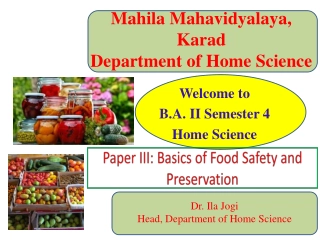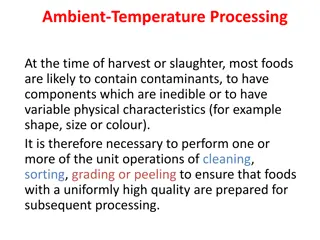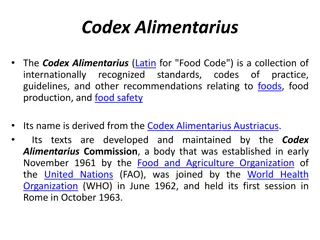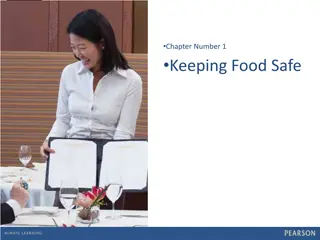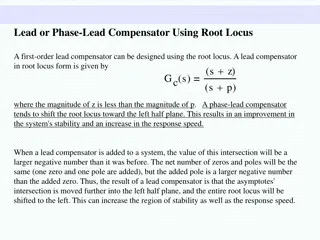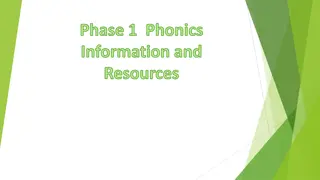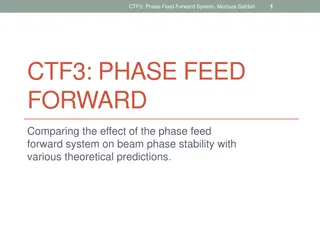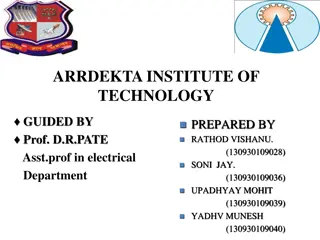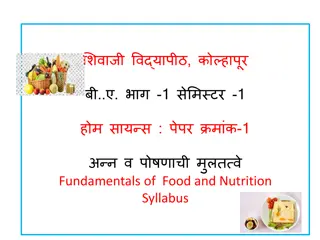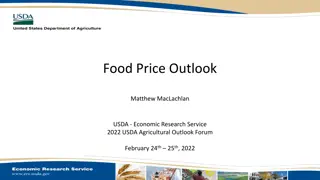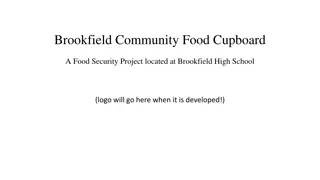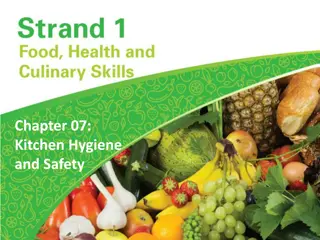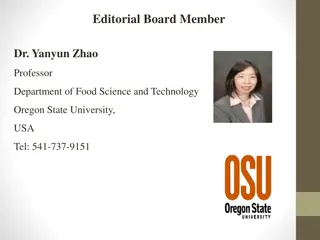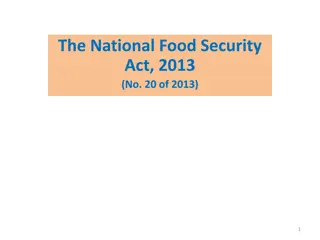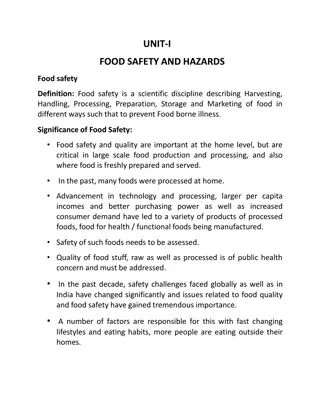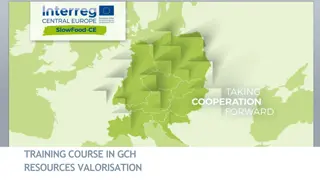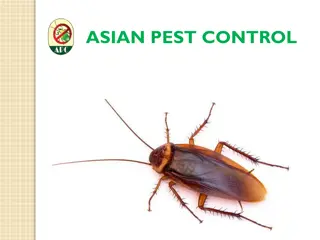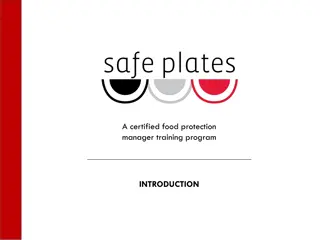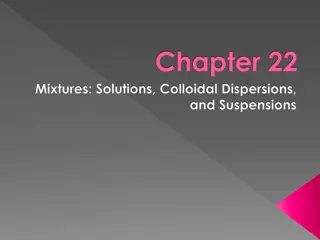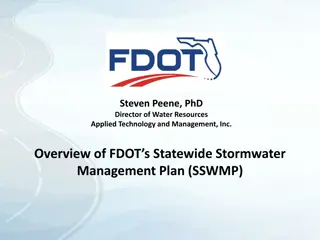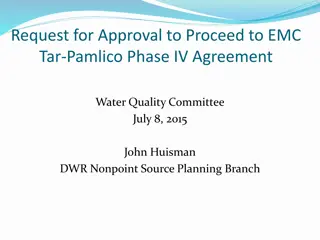Training Course on Control of Contaminants in Food Phase 2
This presentation covers key aspects of Regulations 882/2004/EC and EU/625/2017 regarding official controls on contaminants in food. It discusses strategic planning, risk-based approaches, new provisions, and the Multi-annual National Control Plan. The new Regulation EU/625/2017 brings changes in control fees, sanctions, and border control activities. Entry into force was on December 14, 2019, with exceptions for specific measures. Overall, it emphasizes the importance of systematic control measures for food safety.
Download Presentation

Please find below an Image/Link to download the presentation.
The content on the website is provided AS IS for your information and personal use only. It may not be sold, licensed, or shared on other websites without obtaining consent from the author. Download presentation by click this link. If you encounter any issues during the download, it is possible that the publisher has removed the file from their server.
E N D
Presentation Transcript
Training course on Control on contaminants in food Phase 2 This presentation has been produced under the contract with the Consumers, Health, Agriculture and Food Executive Agency (CHAFEA). The content of this page is the sole responsibility of NSF Euro Consultants Consortium and can in no way be taken to reflect the views of the Consumers, Health, Agriculture and Food Executive Agency or any other body of the European Union. The Consumers, Health, Agriculture and Food Executive Agency or any other body of the European Union will not be responsible under any circumstances for the contents of communication items prepared by the contractors. Food safety
3.1 Current and new OFFC Regulation 882/2004/EC and EU/625/2017: main aspects and changes Strategic planning & MANCP Multiple PDCA cycles Practical aspects of breaking down the objectives What is risk based? Mr. kos J zwiak 1 Food safety
Regulation 882/2004/EC and the new Regulation EU/625/2017 882/2004/EC Art 3: Member States shall ensure that official controls are carried out regularly, on a risk basis and with appropriate frequency EU/625/2017 Art 9 EU/625/2017 brings new approach: defining official controls and other official activities control vs monitoring samples! introducing chain approach tackling emerging issues and laboratory accreditation rules in a more flexible way 2 Food safety
The new Regulation EU/625/2017 EU/625/2017 new provisions on: control fees, possible sanctions border control activities integrated information management system (IMSOC) 3 Food safety
The new Regulation EU/625/2017: entry into force 14 December 2019 Exceptions: 29 April 2022: Official controls on measures against pests of plants [point (g) of Art. 1(2)] Methods used for sampling, analyses, tests and diagnoses [Art. 34(1), (2) and (3)] Accreditation of laboratories [point (e) of Article 37(4)] Scope of the accreditation of an official laboratory [Article 37(5)] 29 April 2018: Reference Laboratories and Reference Centres [Articles 92 to 101] of this Regulation 28 April 2017: Amendments to Regulation (EU) No 652/2014 on laying down provisions for the management of expenditure relating to the food chain [Article 163] 4 Food safety
Multi-annual National Control Plan (MANCP) 882/2004/EC Art 41-44 (EU/625/2017 Art 109-114) Aim: to be a bridge between high level strategies and (annual) operational control plans Most basic principle: Plan-Do-Check-Act (PDCA)-cycle Hierarchical (strategic, operational, actions) Time bound (multi-annual, annual) Spatial (sectoral, individual) 5 Food safety
Risk-based controls & the MANCP PDCA-cycle PDCA Strategic planning Annual planning Plan SWOT-analysis Risk assessment; publishing control plans Breaking down the objectives (strategic to operational) Do Implementation of objectives Implementation of control plans Check Control of fullfillment of objectives Monitoring the effect: Are the controls done? What are the results? Act Corrective actions (new planning process, resource-allocation, legislative action, etc.) Corrective actions (modifying the plan, resource-allocation, etc.) 6 Food safety
Risk-based controls & the MANCP Setting objectives & follow-up: SMART-principle S Specific Well defined; clear for everyone involved Measurable; makes possible to know if the goal is obtainable and how far away completion is; makes possible to know when it has been achieved M Measurable Attainable (resources) are available, therefore there is no theoretical environmental limit to achieve the objective. objectives ensure that the needed conditions A Attainable Objectives should add useful value within the context where they are being set, being aligned with strategies and higher goals. R Relevant Descriptions of objectives should also include timescales of what is required by when. Giving a timescale adds appropriate sense of urgency and ensures that the objectives do not last for an unreasonably long timescale. T Time-bound 7 Food safety
Risk-based controls & the MANCP http://prezi.com/ivs7mbwqvj0p/?utm_campaign=share&utm_medium=cop y&rc=ex0share 8 Food safety
This presentation has been produced under the contract with the Consumers, Health, Agriculture and Food Executive Agency (CHAFEA). The content of this page is the sole responsibility of NSF Euro Consultants Consortium and can in no way be taken to reflect the views of the Consumers, Health, Agriculture and Food Executive Agency or any other body of the European Union. The Consumers, Health, Agriculture and Food Executive Agency or any other body of the European Union will not be responsible under any circumstances for the contents of communication items prepared by the contractors. NSF Euro Consultants Consortium Thank you for your attention! Any questions? Avenue Pasteur,21 1300 Wavre Belgium +32 10 84 97 95 2016.96.05@euroconsultants.be Better Training for Safer Food BTSF European Commission Consumers, Health, Agriculture and Food Executive Agency DRB A3/042 L-2920 Luxembourg Food safety
